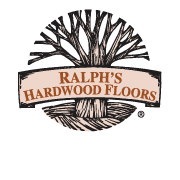You’ve found the perfect condo, and now it’s time to make it feel like home. If you’re dreaming of the warmth and beauty of hardwood floors, you’re probably wondering: Can I even install hardwood in a condo? The short answer is yes. With the right planning and a few smart choices, hardwood floors can work in a condo setting.
Let’s walk through what you need to know.
Yes, You Can Put Hardwood in a Condo
Installing hardwood in a condo is entirely possible. The key is choosing the right product and making sure your building allows it.
Most condos are built on concrete slabs, so engineered hardwood is often the go-to. It’s real wood on top, backed by layers of plywood that offer added stability in fluctuating temperatures and humidity. It also works great for glue-down or floating installations; ideal over concrete.
Before you get started, be sure to:
-
Check your condo bylaws – Many condo boards have rules about hard-surface flooring, including minimum soundproofing ratings or rug coverage requirements.
-
Review subfloor requirements – You’ll likely need a moisture barrier and sound-dampening underlayment.
-
Consider logistics – Hallway turns and elevator sizes matter when delivering long planks.
What About Sanding On Site?
People often assume sanding hardwood floors in a condo is a dusty disaster waiting to happen. But with the right tools and techniques, that’s not the case.
At Ralph’s, we utilize state-of-the-art dust containment systems that are directly connected to our sanding equipment. These systems vacuum dust at the source, keeping your condo and the building clean and livable throughout the process.
So yes, site-finished hardwood is absolutely doable in a condo. And the benefit? A custom color, a seamless surface, and a smooth, beautiful finish you can be proud of.
Should I Consider Luxury Vinyl Plank Instead?
There’s a reason wood-look luxury vinyl plank (LVP) has become so popular, especially in condos.
Here’s what LVP brings to the table:
-
Waterproof and highly scratch-resistant—great for kitchens, entryways, and homes with pets.
-
Budget-friendly, often costing less than hardwood.
-
Easy maintenance, with no sanding or refinishing required.
-
Looks like real wood, especially with today’s high-quality textures and patterns.
If you want the wood look without the maintenance, LVP is a solid alternative. Just keep in mind—it may not offer the same long-term value as genuine hardwood.
Things to Consider Before Installing Hardwood in a Condo
Before you pick your floor and schedule the install, here are a few extra things to keep in mind:
| Factor | Why It Matters |
|---|---|
| Condo Board Rules | You may need approval or meet specific noise and underlayment requirements. |
| Soundproofing | A proper acoustic underlayment is often mandatory. |
| Moisture | Engineered hardwood handles condo humidity better than solid hardwood. |
| Elevator & Access | Long boards or large deliveries may need special coordination. |
| Resale Value | Hardwood flooring can add serious value to your property. |
| Maintenance Preference | Site-finished floors can be touched up in place; prefinished planks are faster to install. |
Our Take
If you love the idea of real wood underfoot, don’t let condo living stop you. With proper planning, the right product, and a little expert guidance, hardwood floors can work beautifully in a condominium.
Want help picking the right flooring for your condo? We’re here to walk you through it. Whether you're considering engineered hardwood, site-finished hardwood, or wood-look vinyl, we’ll help you weigh your options and create a plan that fits your space and style.
📞 Contact us today or stop by our showroom to explore what’s possible.















